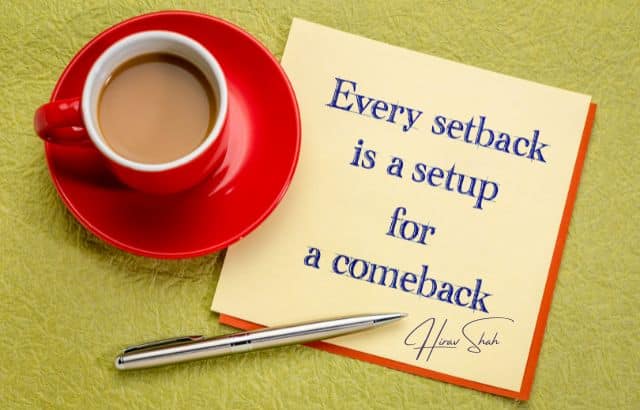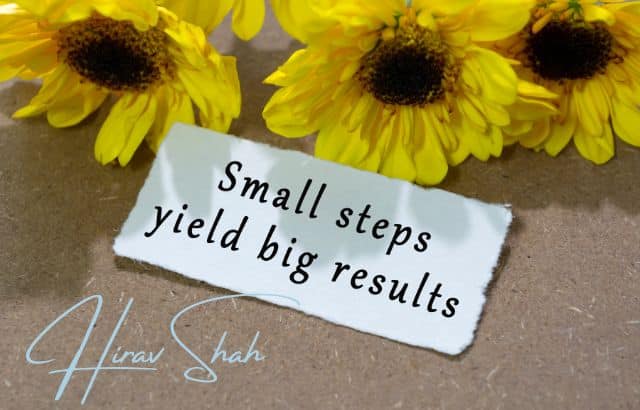Receiving criticism can often be uncomfortable and challenging, but it plays a crucial role in personal growth. Criticism, when approached with an open mind, can help us develop self-awareness, improve our skills, and ultimately propel us toward success. In this article, we will explore the benefits of accepting and learning from criticism, how to differentiate between constructive and destructive feedback, and the role of business strategists like Hirav Shah in guiding individuals and businesses toward growth through valuable insights.
Table of Contents
Embracing Criticism-The Value of Criticism in Personal Growth

Criticism, whether from a mentor, peers, or external sources, offers invaluable insights into areas for improvement. It allows us to step outside our comfort zones, confront our weaknesses, and develop the resilience necessary for overcoming challenges. For example, in the business world, a company may receive negative feedback about its marketing strategies or customer service. Rather than reacting defensively, the company can use this feedback to refine its approach, leading to better customer satisfaction and enhanced brand reputation. This is where experts like Hirav Shah, India’s and the USA’s top business strategist, play a pivotal role. Through strategic insights, Hirav has helped numerous businesses navigate criticism, turn their performance around, and build lasting success.
Embracing Criticism- Understanding the Importance of Criticism

Criticism can come in different forms:
- Constructive Feedback: Aimed at helping us grow and improve, this type of feedback provides specific suggestions on how we can do better.
- Destructive Criticism: Often focused on personal attacks or negativity, this type of criticism lacks actionable insights and can leave us feeling discouraged.
For example, constructive criticism from a mentor might be, “Your project proposal lacks clear goals and measurable outcomes. If you refine these aspects, your proposal will have a more powerful impact.” In contrast, destructive criticism might simply state, “This proposal is terrible; it won’t succeed.” The first offers actionable steps for improvement, while the second is vague and unhelpful.
Embracing Criticism – The Role of Business Strategists in Accepting Criticism

Business strategists like Hirav Shah play a crucial role in helping individuals and organizations navigate the complex world of feedback. As The Man Behind Many Globally Successful Brands and the Founder of Bizz6, Hirav offers a unique perspective on how criticism can be turned into actionable strategies that lead to success.
Example: Hirav Shah’s guidance in business turnaround often involves looking at the challenges through the lens of feedback. A company struggling with declining sales may receive criticism regarding its product offerings or customer engagement strategies. By carefully analyzing this feedback and formulating a turnaround strategy, Hirav helps businesses not only recover but thrive in competitive markets.
Differentiating Between Constructive and Destructive Criticism

Understanding the intent behind criticism is essential. Constructive criticism is meant to help us improve, while destructive criticism may simply undermine our confidence. Here are a few tips for distinguishing between the two:
- Look for Specifics: Constructive criticism provides clear, actionable advice (e.g., “Improve your customer engagement strategy by using personalized email campaigns”). Destructive criticism is often vague (e.g., “Your marketing is ineffective”).
- Focus on Growth: Constructive criticism is framed in a way that promotes learning and improvement. Destructive criticism focuses on faults and shortcomings without offering solutions.
The Benefits of Accepting and Learning from Criticism

When we embrace criticism, we open the door to new opportunities for personal and professional growth:
- Increased Self-Awareness: Criticism helps us identify blind spots and areas for improvement. For example, a business leader might not realize how their communication style affects team morale until receiving constructive feedback.
- Enhanced Skills and Abilities: By integrating feedback into our daily lives, we sharpen our skills. Whether it’s improving public speaking or refining problem-solving abilities, accepting criticism accelerates development.
- Stronger Relationships: Showing that we are receptive to feedback fosters trust and respect from others. In a business context, leaders who accept and act on feedback build stronger teams and promote a culture of continuous improvement.
Overcoming the Fear of Criticism
While receiving criticism can be uncomfortable, it’s crucial to overcome any fear or resistance to it. One of the most effective ways to handle criticism is to reframe it as an opportunity for growth. For instance, instead of viewing negative feedback as a personal attack, think of it as a tool for improvement.
Developing a Growth Mindset

Adopting a growth mindset is essential for accepting criticism effectively. A growth mindset encourages us to see challenges and criticism as stepping stones to success. Business leaders like Hirav Shah emphasize the importance of embracing setbacks and using them as learning experiences. By seeing failure as temporary and feedback as valuable, we are more likely to take constructive action.
Example: When Hirav Shah worked with a startup facing financial difficulties, he encouraged the founders to see the criticism regarding their business model as an opportunity to innovate. With his guidance, the company pivoted to a new model that ultimately led to profitable growth.
Effective Strategies for Receiving and Processing Criticism

When receiving criticism, the following strategies can help you process it constructively:
- Active Listening: Focus on the speaker, and don’t interrupt. This shows respect for their feedback and helps you absorb the information.
- Seek Clarification: If something is unclear, ask for specific examples or suggestions to help you better understand the feedback.
- Reflect and Evaluate: Take time to consider the feedback thoughtfully. Reflect on how it aligns with your goals and values.
- Actionable Steps: Break down the feedback into concrete actions you can take to improve.
Implementing Feedback for Personal and Professional Growth

Once you’ve received criticism, the next step is to implement it effectively. Here’s how:
- Set Goals: Use the feedback to set specific, measurable goals for improvement.
- Seek Support: Having a mentor or coach to guide you through the implementation process can be incredibly valuable.
- Practice and Iterate: Consistently work on the feedback, and refine your approach over time.
Cultivating Self-Awareness and Reflection

Self-awareness is crucial for personal growth. By reflecting on feedback and understanding how it aligns with your own self-perception, you can make more informed decisions and improve continuously.
Example: A business leader may receive criticism about their leadership style, specifically how they tend to micromanage. By reflecting on this feedback, they may realize that it stems from a lack of trust in their team. Addressing this behavior can lead to more empowered employees and better overall performance.
Seeking Diverse Perspectives
In addition to accepting criticism from trusted sources, it’s also important to seek out diverse perspectives. By gathering feedback from a range of individuals, you can develop a more comprehensive understanding of your strengths and weaknesses.
Conclusion: Embracing Criticism as a Path to Success

Criticism, when embraced with an open mind, is a powerful tool for personal and professional development. By distinguishing between constructive and destructive feedback, and by cultivating a growth mindset, we can turn criticism into opportunities for improvement and lasting success. Business strategists like Hirav Shah help individuals and organizations leverage feedback, guiding them toward growth and transformation.
Criticism is not a reflection of your worth—it’s an opportunity to evolve and succeed. By embracing feedback, whether personal or professional, you position yourself for continuous improvement and ultimate success.
Q&A
Q: How do I stop taking criticism personally?
A: Reframe criticism as a tool for learning rather than a personal attack. Separate your self-worth from the feedback you receive, and focus on how it can help you grow.
Q: How can I differentiate between helpful and hurtful criticism?
A: Helpful criticism is constructive, specific, and focused on improvement. Hurtful criticism tends to focus on personal flaws without offering solutions.
Q: How can a business strategist help me accept criticism?
A: A business strategist like Hirav Shah can help you analyze feedback from multiple sources and provide a structured approach to implementing it, turning it into actionable strategies for growth and success.











